Search Results
Showing results 1 to 12 of 12

Mating Game
Source Institutions
In this game (on pages 14-21), learners explore how each human being inherits genetic traits such as eye color.
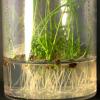
Plant Tissue Culture: Classroom Activities in Plant Biotechnology
Source Institutions
In this activity related to plant biotechnology, learners use the tissue culture process to rapidly produce clones (genetic copies) of a particular plant (cauliflower, rose cuttings, African violet le

Secret Codon
Source Institutions
In this activity, "write" a secret message in genetic code as beads on a string.

Genetics the Easy Way
Source Institutions
In this activity, learners make critters out of recyclables and apply the rules of mathematics to solve genetics problems.

Let's Clone a Mouse, Mouse, Mouse...
Source Institutions
Somatic Cell Nuclear Transfer (SCNT) is a cloning method that involves transferring a nucleus from a somatic cell of the individual to be cloned to an enucleated egg.
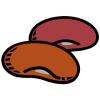
Not Just A Bag Of Beans
Source Institutions
In this activity, learners count and measure kidney beans to explore natural selection and variation. Learners measure the length of 50-100 beans.

Gel Electrophoresis
Source Institutions
In this activity, learners simulate the process of DNA fingerprinting by using electricity to separate colored dyes.

Biotechnology Through Time
Source Institutions
In this activity, learners investigate the history and development of agricultural biotechnology.
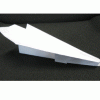
Evolution in Plane Sight
Source Institutions
In this activity, learners model directed evolution by making paper fly. Learners construct and fly paper airplanes.
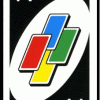
Stem Cell Differentiation Game
Source Institutions
This game uses a modified Uno deck to review concepts related to stem cell research and diabetes.
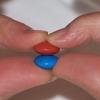
Survival of the Fittest: Battling Beetles
Source Institutions
This guided inquiry three-part activity engages learners in thinking about the mechanism of natural selection through data collection and pattern recognition.
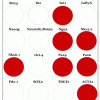
Microarrays and Stem Cells
Source Institutions
In this activity, learners use microarray technology to determine which genes are turned on and off at various points in the differentiation of pluripotent stem cells on their way to becoming pancreat
